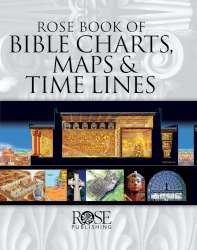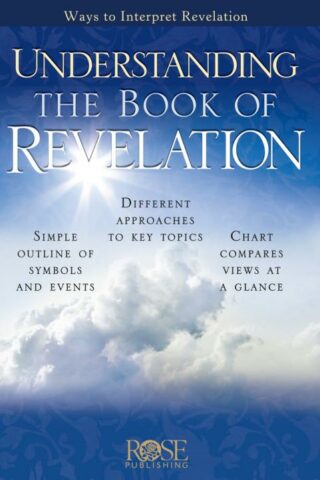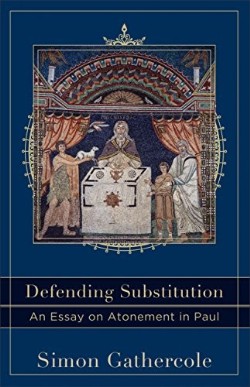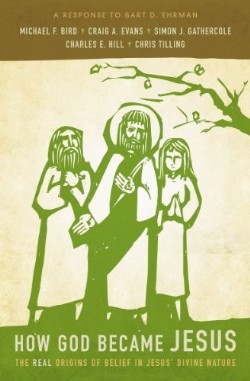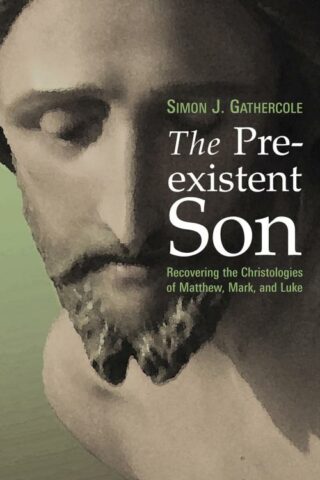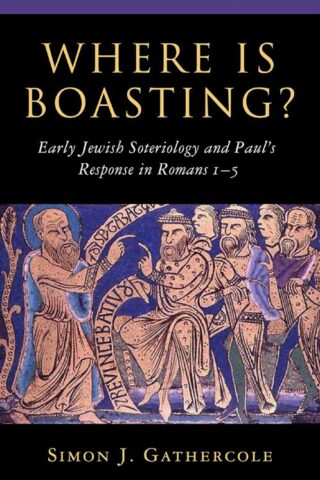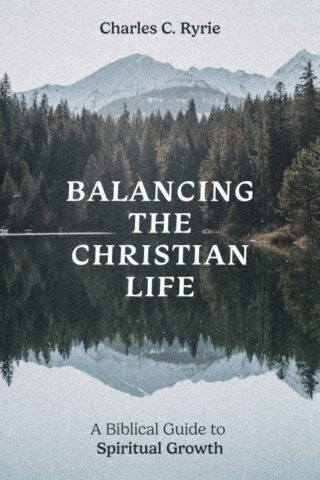Simon Gathercole
Showing all 5 resultsSorted by latest
-
What Did The Cross Accomplish
$28.00In this book, readers will enjoy a fascinating and cordial discussion between N. T. Wright and Simon Gathercole on the meaning and nature of the doctrine of atonement. These two highly respected scholars discuss in clear and understandable language the meanings of the crucifixion of Jesus Christ. Their discussion explores various theories of atonement and looks closely at the Old Testament to discover Paul’s meaning of his words that Christ died for our sins in accordance with the Scriptures.
Wright presents his case first, then Gathercole responds with a contrary point of view. Their discussion confronts questions including: What exactly is this “scandal of the cross”? What role does the notion of sacrifice, as understood in its ancient context, play in the atonement of Christ? Is the atonement a “victory”? How so? Was Christ a “substitute,” taking humankind’s place on the cross and suffering the death and judgment that sinners deserve? How does the death of Christ on the cross rescue or liberate sinners from death? Does the cross achieve benefits for only humans, or do those benefits extend to the entirety of creation? This book is a succinct conversation in which all these questions receive attention, with nuanced differences between the two interlocutors. This conversation along with Robert Stewart’s introductory framework make this book an excellent primer to the study of the atonement, and readers will come away with a deeper understanding of the meanings of the cross.
Add to cartin stock within 3-5 days of online purchase
-
Defending Substitution : An Essay On Atonement In Paul
$28.23In recent decades, the church and academy have witnessed intense debates concerning the concept of penal substitution to describe Christ’s atoning sacrifice. Some claim it promotes violence, glorifies suffering and death, and amounts to divine child abuse. Others argue it plays a pivotal role in classical Christian doctrine. Here world-renowned New Testament scholar Simon Gathercole offers an exegetical and historical defense of the traditional substitutionary view of the atonement. He provides critical analyses of various interpretations of the atonement and places New Testament teaching in its Old Testament and Greco-Roman contexts, demonstrating that the interpretation of atonement in the Pauline corpus must include substitution.
Add to cartin stock within 3-5 days of online purchase
-
How God Became Jesus
$16.99In his recent book How Jesus Became God: The Exaltation of a Jewish Preacher From Galilee historian Bart Ehrman explores a claim that resides at the heart of the Christian faith— that Jesus of Nazareth was, and is, God. According to Ehrman, though, this is not what the earliest disciples believed, nor what Jesus claimed about himself.
The first response book to this latest challenge to Christianity from Ehrman, How God Became Jesus features the work of five internationally recognized biblical scholars. While subjecting his claims to critical scrutiny, they offer a better, historically informed account of why the Galilean preacher from Nazareth came to be hailed as ‘the Lord Jesus Christ.’ Namely, they contend, the exalted place of Jesus in belief and worship is clearly evident in the earliest Christian sources, shortly following his death, and was not simply the invention of the church centuries later.
Add to cartin stock within 3-5 days of online purchase
-
Pre Existent Son
$39.99Finding evidence for Jesus’ pre-incarnate existence in the Synoptics, Gathercole compares the “I have come” sayings of Jesus with angelic pronouncements in Second Temple and rabbinic literature; considers the variety of titles applied to Jesus; then comments on related topics such as wisdom Christology. Will stir up debate. 320 pages, softcover. Eerdmans.
Add to cartin stock within 3-5 days of online purchase
-
Where Is Boasting
$43.99This important work challenges the validity of the “New Perspective” on Paul and Judaism. Working new data from Jewish literature and a fresh reading of Romans 1-5, Simon Gathercole produces a far-reaching criticism of the current approach to Paul and points a new way forward. Building on a detailed examination of the past generation of scholarship on Paul and early Judaism, Gathercole’s work follows two paths. First, he shows that while early Judaism was not truly oriented around legalistic works-righteousness, it did consider obedience to the Law to be an important criterion at the final judgement. On the basis of this reconstruction of Jewish thought and a rereading of Romans 1-5, Gathercole advances his main argument – that Paul did indeed combat a Jewish perspective that saw obedience to the Law is not a criterion for the final judgement because human nature makes obedience to the Law impossible. His doctrine of justification can therefore be properly viewed in its Jewish context, yet anthropological issues also take center stage.
Add to cartin stock within 3-5 days of online purchase

